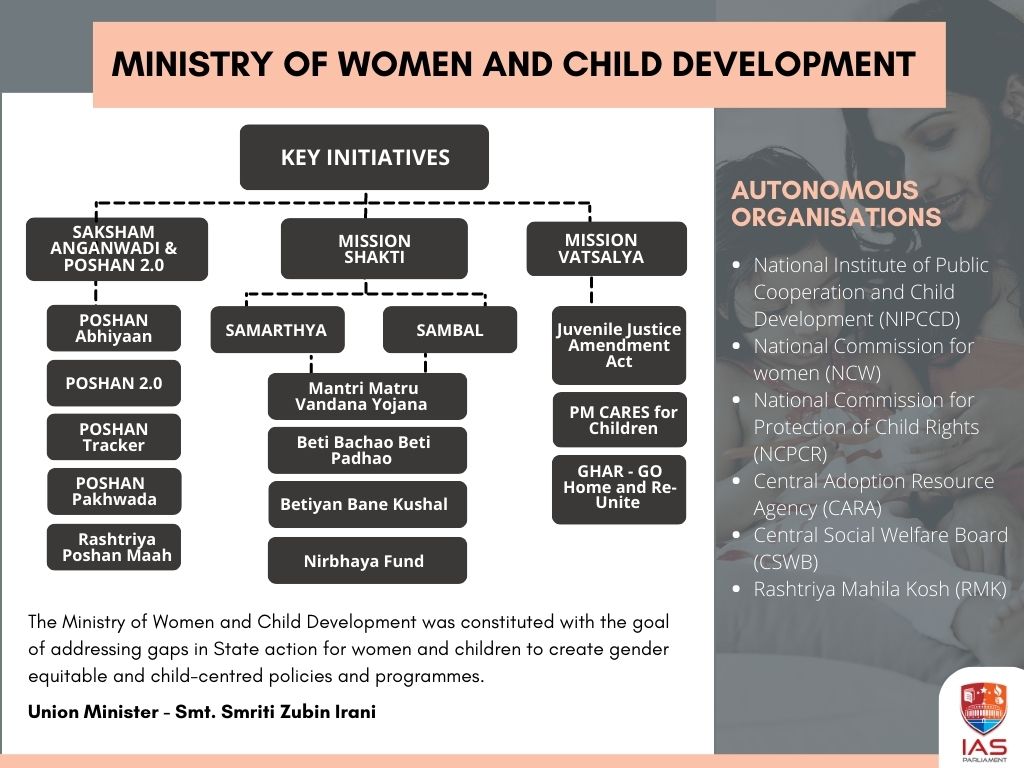7667766266
enquiry@shankarias.in
Ministry of Women and Child Development (MoWCD)
National Commission for women (NCW)
National Commission for Protection of Child Rights (NCPCR)
Central Adoption Resource Authority (CARA)
 SAKSHAM ANGANWADI AND POSHAN 2.0
SAKSHAM ANGANWADI AND POSHAN 2.01. POSHAN Abhiyaan
2. POSHAN 2.0
3. POSHAN Tracker
4. Poshan Pakhwada
5. Rashtriya Poshan Maah
To know about Part-2, click here
Reference